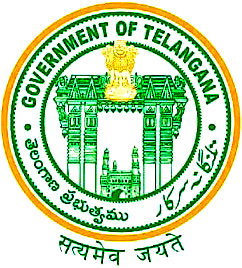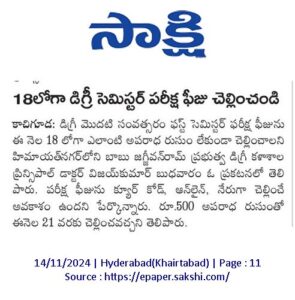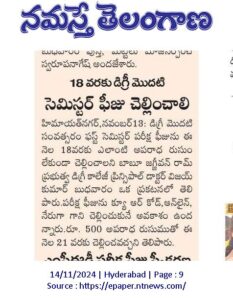Dept. of Microbiology
- About
- Courses Offered
- Faculty
- Curricular & Co-Curricular
- Research, Extension & MoUs
- Results
- Activities
- Best Practices
- Future Plans
ABOUT THE DEPARTMENT
The Department of Microbiology was established in the college in the year 2019-20 with two UG course: Microbiology , Botany, and Zoology(MBZ), Microbiology, Zoology, Chemistry (MZC) . In 2020-21, new combinations have been introduced with Microbiology, Biotechnology, Zoology ( MBT Z), Microbiology, Applied nutrition, Zoology (MANZ), Microbiology, Biotechnology, Chemistry( MBTC) & Microbiology, Zoology, Computer science( MZCs),Microbiology, Applied nutrition, Chemistry(MANC) . In 2021-22 Microbiology with Psychology combination has also been introduced. Currently the department offers the above courses to 106 students.
The department works with high dedication and commitment towards overall development of the students. Student centric methodology is being adopted by the faculty to encourage the students in interactive and participative learning. The faculty continuously upgrades themselves in ICT teaching methodologies by attending different FDPs and orientation programmes for the benefit of the students.
VISION
- To impart quality education through exploration ,experimentation and establish a platform to access information on current emerging trends in Microbiology.
MISSION
- The Mission of the Department is to promote good quality education and inspiring training in different disciplines of Microbiology.
- To create an innovative, creative study environment for the students.
- To train the student to excel in both practical and theoretical aspects of Microbiology.
- Motivate and guide the students to develop new techniques in Microbiology.
- Elementary knowledge in clinical, immunological, biochemical techniques for the graduates.
OBJECTIVES
- To impart quality education through well balanced curriculum and equip students with knowledge and skills for research and professional careers.
- To train students and help them gain experience in higher learning through discussions, debates, and power point presentations.
- To create awareness about possible scope and range of research activities in the field of lifesciences.
- To enlighten the students with necessary and appropriate laboratory skills and techniques.
- To organize outreach activities to promote scientific culture.
Courses Offered:
| BSc | Courses | Year |
| Bsc CMBZ | Microbiology, Zoology, Chemistry | 2019-2020 |
| BSc MBZ | Microbiology, Botany,Zoology | 2019-2020 |
| BSc MBTZ | Microbiology, Biotechnology, Zoology | 2020-2021 |
| BSc MCAN | Microbiology, Chemistry, Applied Nutrition | 2020-2021 |
| BSc MZCs | Microbiology, Zoology, Computer Science | 2020-2021 |
| BSc MBTC | Microbiology, Biotechnology, Chemistry | 2020-2021 |
| BSc MZAN | Microbiology, Zoology, Applied Nutrition | 2020-2021 |
| BSc MZPs | Microbiology,Zoology,Psychology | 2020-2021 |
| BSc MCCs | Microbiology, Chemistry, Computer Science | 2020-21 |
| BSc MBTPSyc | Microbiology, Biotechnology,Psychology | 2020-21 |
PROGRAMMES OFFERED
The Department offers UG-BSc –MICROBIOLOGY programmes in English medium
Program outcomes and Program Specific outcomes
| S.No | Programs Offered | Program Outcomes | Program Specific Outcome |
| 1 | MZC | Objective:
To inculcate enthusiasm in the core subjects Microbiology, Zoology & Chemistry along with the languages to meet the curriculum designed by University. Outcome: Provides a strong foundation in the subject. Generating students with overall skill ability catering wide career opportunities globally and also meeting the requirements of industries. |
PSO1.Advanced learning techniques for students aiming to be a part of various research institutes of Microbiology were carried out by the science faculty. |
| 2 | MBZ,MBTZ,MBTC,
MANZ,MANC,MZPSY, MCCs, MBTPsych |
Objective:
1.To inculcate enthusiasm in the core & applied subjects Botany, Zoology, Microbiology, Applied Nutrition, Biotechnology & Chemistry along with the languages to meet the curriculum designed by University. Outcome: Ability to create innovative and related knowledge through inquiry, critical reflection and synthesis. Encourages and provides platform for higher education Increases the ability to face the world with confidence and courage in the competitive world.
|
PSO1.Advanced learning techniques for students aiming to be a part of various research institutes of Botany, Zoology, Microbiology, Applied Nutrition, Biotechnology and chemistry were carried out by each of the science faculty. |
COURSES OFFERED
ALLOCATION OF CREDITS
B.Sc. – Microbiology
| Semester | Paper | Theory and Practical | Title | Contact Hours per week | Max. Marks | Credits |
| I | Paper – I | Theory | General Microbiology | 4 | 100 | 4 |
| Practicals – I | 2 | 50 | 1 | |||
| II | Paper – II | Theory | Microbial Diversity | 4 | 100 | 4 |
| Practicals – II | 2 | 50 | 1 | |||
| III | Paper – III | Theory | Food & Environmental Microbiology | 4 | 100 | 4 |
| Practicals – III
|
Food & Environmental Microbiology | 2 | 50 | 1 | ||
| SEC-1 | Haemotology | 2 | 50 | 2 | ||
| SEC-2 | UGC Given | 2 | ||||
| IV | Paper – IV | Theory | Medical microbiology & Immunology | 4 | 100 | 4 |
| Practicals – IV | Medical Microbiology& Immunology | 2 | 50 | 1 | ||
| SEC-3 | Mushroom Cultivation | 2 | 50 | 2 | ||
| SEC-4 | UGC Given | 2 | ||||
| V | Paper – V A (DSE) | Theory | Molecular Biology& Microbial Genetics | 4 | 100 | 4 |
| Practicals – V A | 2 | 50 | 1 | |||
| Paper – V B (DSE) | Theory | Microbial Omics | 4 | 100 | 4 | |
| Practicals – V B | 2 | 50 | 1 | |||
| GE – I | Theory | Microbiology and Human Health | 4 | 100 | 4 | |
| VI | Paper – VI A
(DSE) |
Theory | Industrial Microbiology | 4 | 100 | 4 |
| Practicals – VI A | 2 | 50 | 1 | |||
| Paper – VI B (DSE) | Theory | Pharmaceutical Microbiology | 4 | 100 | 4 | |
| Practicals – VI B | 2 | 50 | 1 | |||
| Project Work/Applied Microbiology | Experiment/Theor y | 3+2
|
100 | 4 | ||
| Total credits | 56 | |||||
COURSE OUTCOMES
| S/NO | COURSE CODE/COURSE TITLE | COURSE OUTCOMES |
| 1 | SEMESTER I
PAPER – I General Microbiology Course Code: BS
|
On completion of this Semester, the students will be able to:
CO1: Study the History and Contributions of different scientists in the field of Microbiology. CO2: Illustrate the structure and function of microbial cells. CO3: Utilize the principles and applications of different types of microscopes. CO4: Apply various staining procedures for visualizing microorganisms under microscope. CO5: Knowledge about the structure of prokaryotes and Viruses and its classification. CO6: Develop thorough knowledge on different methods of isolation of pure culture and preservation of pure culture. CO7: Identify the various physiological groups of bacteria and describe the nutrients required for cell synthesis and growth as well as explain the various transport systems involved in the uptake of nutrients by bacteria. CO8: Devise and prepare media for isolation and growth of microorganisms. CO9: Assess various metabolic pathways occurring in microorganisms and their significance. CO10: Understand the implications of various sterilization procedures and biosafety procedures in microbiology lab. CO11: Learn about the different phases & methods of measurement of microbial growth. |
| 2 | SEMESTER II-PAPER – 2
Microbial Diversity COURSE CODE: BS
|
On completion of this Semester, the students
CO1: Understand the concept of Biodiversity & its Conservation & also describe the elements of Biodiversity. CO2: Classify Bacteria as per the second edition of Bergeys manual of Systemic Bacteriology and understand the Haeckel’s, Whittaker’s & Carl Woese system of classification of Living Organisms.
CO3:Study the comparative characteristics of Prokaryotes and Eukaryotes. C04: Assess the Ecology, physiology and Metabolic diversity of Archaea bacteria (Extremophiles),Gram Negatives & Gram positives. C05: Describe the structural, physiological & metabolic characteristics of Eukaryotic Organisms. (Algae, Fungi, Protozoa). CO6: Understand the different microbial interactions like Symbiosis, Neutralism, Commensalism, Antagonism, Synergism & Parasitism. CO7: Insight into the diversity of cultivated & uncultivated microorganisms & Great Plate Count Anomaly. |
| 3 | SEMESTER III PAPER – III
Food and Environmental Microbiology COURSE CODE: BS
|
On completion of this Semester, the students will be able to:
CO1: Gain knowledge about food as a substrate for various microbes, the role of factors and its importance. CO2: Understand the beneficial role of microorganisms in food processing and the production of different types of fermented foods – Pickles, Sauerkraut, Kimchi,Idli, etc. CO3: Study the different types of microorganisms in milk and their activities – fermented dairy products (cheese, yogurt, Bulgarian milk) and their applications as Probiotics and Prebiotics. CO4:Assess the principles and applications of different food preservation techniques. CO5: Equip themselves the pragmatic understanding of food spoilage. CO6: Acquire thorough understanding of food borne diseases, testing methods. CO7: Knowledge about different microorganisms in water and analyze the methods for purification &treatment of water. CO8: Study about the hygienic practices to control water borne diseases. CO9: Know about the physical ,chemical ,biological properties, and interactions of microorganisms with soil. CO10: Assess the role of microbes in biodegradation and bioremediation of environmental pollutants. |
| 4 | SEMESTER IV PAPER – IV
Medical Microbiology & Immunology COURSE CODE: BS406
|
On completion of this Semester, the students will be able to:
CO1: Know the conceptual basis for understanding pathogenic microorganisms and the mechanisms by which they cause disease in the human body transmitted by air water and through contact. C02: Provides opportunities to develop informatics and diagnostic skills including the use and interpretation of laboratory tests in diagnosis of infectious diseases. CO3:To understand the importance of pathogenic bacteria which are causing food borne, Insect borne, Zoonotic mode of infections. CO4: Acquire knowledge on key concepts in immunology and overall organization of the immune system. C05: Analyze graft rejection in transplantation by learning the MHC molecules and functions. CO6: Comprehend the salient features of antigen antibody reactions & its uses in diagnostics. CO7: Illustratively assess the hypersensitivity and autoimmune disorders. |
| 5 | SEMESTER V PAPER –V
DISCIPLINE SPECIFIC ELECTIVE-A Molecular Biology & Molecular Genetics COURSE CODE: BS
|
On completion of this Semester, the students will be able to:
CO1: Refresh the knowledge about Mendelian laws, Structure and replication of DNA. CO2:Understand about the Extrachromosomal genetic elements-Plasmids, Transposons. CO3: Know about mutations & the agents responsible for the mutations to occur. CO4: Gain the knowledge of prokaryotic and eukaryotic gene expression and control of gene expression in prokaryotes by Lac operon concept. CO5: Basic understanding of role of enzymes as a tool in biotechnology. CO6: Learn the significance of vector as a tool in construction of new gene product. C07: Provide scientific aptitude in understanding the application of genetic engineering in medicine, agriculture and industry.
|
| 6. | SEMESTER V PAPER –V
DISCIPLINE SPECIFIC ELECTIVE-B Microbial Omics COURSE CODE: BS
|
On completion of this Semester, the students will be able to:
CO1: Refresh the knowledge about the structure of DNA, RNA. CO2: Give basic understanding about Genomics, Proteomics, Metabolomics, Metagenomics and their applications. CO3:Acquire knowledge about different structures of proteins. CO4: Explore the principles and applications of NMR spectroscopy, X-ray crystallography. CO5: Create awareness about functional applications of genomics in vaccine and drug designing. CO6: Evaluate the role of bioinformatics in maintaining the primary, secondary and structural database. CO7: Get to know the importance of bioinformatics in Phylogenetic analysis and tree construction. |
| 7. | SEMESTER VI
PPAPER VI DISCIPLINE SPECIFIC ELECTIVE –A Industrial Microbiology COURSE CODE: BS |
CO1: Understand the role of microorganisms in Industrial production of products.
CO2: Gain an insight into the methods of screening used for selection of industrially useful microbes. CO3: Acquire knowledge about strain improvement and immobilization methods. CO4: Understand the design of Fermentor , types of Fermentors, factors affecting the fermentation process. CO5:Know about the different raw materials used in preparation of inoculation and fermentation media. CO6: Analyze the role of microorganisms in production of Vitamins, Vaccines, Beverages, Biofuels, Enzymes, Antibiotics, Aminoacids, Organic acids. CO7: Explains the process of disposal of industrial waste. |
| 7 | SEMESTER VI PAPER-VI
DISCIPLINE SPECIFIC ELECTIVE-B Pharmaceutical Microbiology COURSE CODE: BS
|
On completion of this Semester, the students will be able to:
CO1: Brief introduction to concept of chemotherapy. CO2: Gain an insight into Origin, Definition, Development, types of antibiotics and their classification. CO3: Understand the clinical basis, phenomenon, biochemistry , genetics of drug resistance.
CO4: Analyze the mode of action of important drugs. CO5: Develop awareness about different microbiological assays.
|
| 8. | PROJECT/
APPLIED MICROBIOLOGY |
CO1: Understand the concept of patenting and IPR.
CO2: Acquire knowledge about microorganisms involved in production of Biofertilizer and Biopesticides. CO3: Explore the importance of biotransformation and metabolic engineering to produce microbial compounds. CO4:Identify methods of collecting, transporting and processing of clinical samples in diagnostic microbiology. CO5: Analyze the serological methods for detection of bacterial, fungal and viral pathogens. CO6: Describe the techniques used for diagnosis of hospital acquired infections and multidrug resistant forms. CO7: Explain the concept of biohazard disposal.
|
CERTIFICATE COURSES:
| S/NO | CERTIFICATE COURSE | ACADEMIC YEAR |
| 1. | Cell Designing
Certificate course done by Dept of Biotechnology and Microbiology under MOOCS |
2020-21 |
| Sl.No. | Photo | Name | Designation | Profile |
|---|---|---|---|---|
| 1 | 
| P.Archana Mary M.Sc, M.Phil,B.Ed | Lecturer (Contract) | Profile |
DEPARTMENT ACTIVITIES (2019-20 TO 2020-21)
Academic Year: 2019-20
| S/NO | ACTIVITY
CURRICULAR AND CO-CURRICULAR ACTIVITIES |
CONDUCTED |
|
1. |
Field Trip
|
Osmania University –Department of Microbiology |
|
2. |
Science Day Celebrations |
Prepared questions for Quiz Programme |
| 3. | Extension Lecture
On Topic “Recombinant DNA Technology” Given by Dr.Y.Venkateshwarlu Assistant Professor of Biotechnology GDC, Khairatabad . |
Department of Biotechnology & Microbiology |
DEPARTMENTAL ACTIVITIES-2020-21
| Sl.No | Month | Date | Departmental Activities- Curricular and Co-Curricular activities with photos |
|
1.
|
February | 04/02/21 | Induction Programme to First year Life Science Students
|
| 2. | 04/02/21 | Extension lecture on Fermented Foods by Dr.N.Harikrishna , Assistant Professor of Microbiology , GDC , Gajwel.
|
|
|
3. |
March |
22/03/21 |
World waters day-BSC Students participated in Rally and poster presentation on the importance of saving water, and usage of pure water for protecting from water borne diseases on 22/03/2021
|
SWOT ANALYSIS OF MICROBIOLOGY DEPARTMENT
| Strengths:
⮚ Qualified and Experience faculty. ⮚ Faculty actively involved in Administrative, Academic work and Research coordinator.
|
Weakness:
⮚ Insufficient infrastructure ⮚ Less collaboration with industries. ⮚ Less awareness among the students towards competitive examination.
|
| Opportunities:
⮚ To start Free PG Entrance Coaching in Microbiology ⮚ To increase Industry Academia interaction.
|
Challenges:
⮚ Improve communication skills of students ⮚ To meet the need of industries by using existing curriculum ⮚ Creating awareness about self-employment.
|
TRAININGS/WORKSHOP/SEMINARS/CONFERENCES ATTENDED BY FACULTY
| S/NO | NAME OF THE TEACHER | DETAILS OF THE TRAINING/WORKSHOP | YEAR |
| 1. | P. Archana Mary | –Conducted Workshop on “ New Trends and Early Detection of Pathogens using Chromagar media” on 14-09-2016 at Govt City College, Hyderabad.
— Conducted Seminar on Rivers and SDG’S series-River Musi an example on 15-07-2017 at Government City College Hyderabad. —-Conducted Work shop on “Sampling and identification of Food Contaminants ” on 25-01-2018 at Govt City College, Hyderabad. —Conducted One day National Seminar on “Ecosystem Restoration” on 29th June 2021. |
2016-2021 |
| Faculty Development Programs | —– Attended Seven days Online FDP (National Webinar) in “Online Teaching ,Learning,& Assessment in Higher Education” organized by Examination Branch, University College For Women, Koti , from 25th June -1st July 2020
-Attended online 5 days FDP programme on “NAAC Accreditation and ICT tools” organized by DSGDC Ongole& GDC Chebrole , Andhra Pradesh from 26th June -30th June 2020. —Attended One Week Online FDP programme on “Digital Teaching Tools” organized by Government City College, Hyderabad from 29th June -5th July 2020. —-Attended One Week Online FDP Programme on “Sustainability of institutions in higher learning in context of COVID 19, Challenges and Pespectives” organized by GDC Narsampet from 6th July-11th July 2020. —-Attended Seven days FDP Programme on “The Role of aTeacher in Nation Building” Keshav Memorial Institute of Commerce and Sciences from 3rd August-9th August 2020. |
2020 |
|
| Webinars | —Attended International Webinar on “ ICT enabled education-Teaching, Learning & Evaluation” organized by Examination Branch Nizam College, from 13th -19th July 2020.
—-Attended 2 day National Webinar on “Preparing Young Women for the World” in collaboration with Kaam4u foundation organized by Women Empowerement Cell, GDC, Khairatabad on 7th& 8th August 2020. —Conducted Webinar on “ Emerging applications of Artificial Intelligence in Sciences ”on 19.03.2021 in Government Degree College, Khairatabad. |
2020-21 |
STUDENT PERFORMANCE- RESULT ANALYSIS
October 2021
4th Semester
| Course | Subject | No. of Appeared | No. of Passed | Pass Percentage |
| B. Sc MBZ
|
Paper IV | 15 | 13 | 90% |
2nd Semester
| Course | Subject | No. of Appeared | No. of Passed | Pass Percentage |
| B. Sc MZC,MBTC,MBTZ,MZCs,MCAN,MZAN,MZPSy,MCCs, MBTPsych
|
Paper II | 36 | 23 | 50% |
BEST PRACTICES:
- Blood grouping
- Pasting Weird diseases information on notice board
Future Plans
- To Strenghten Collaborative research
- To Organize National seminars
- Awareness campaign regarding health benefits of using probiotic foods & also about the need for vaccination among college students.
At BJR Govt. Degree College, Narayanaguda, We are happy providing excellent education and molding the future generation ..
For more information and admission details ..





